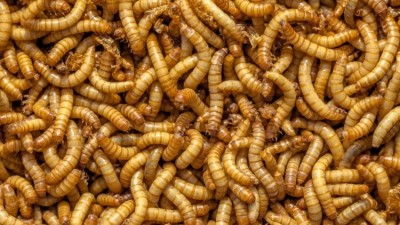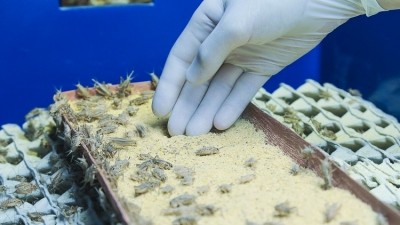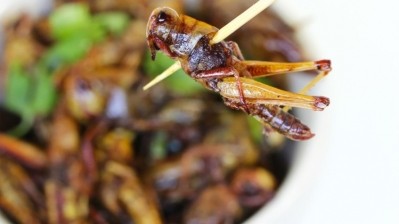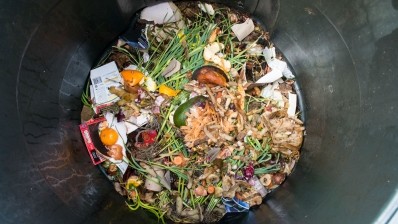Raising insect super soldiers to combat growing food waste
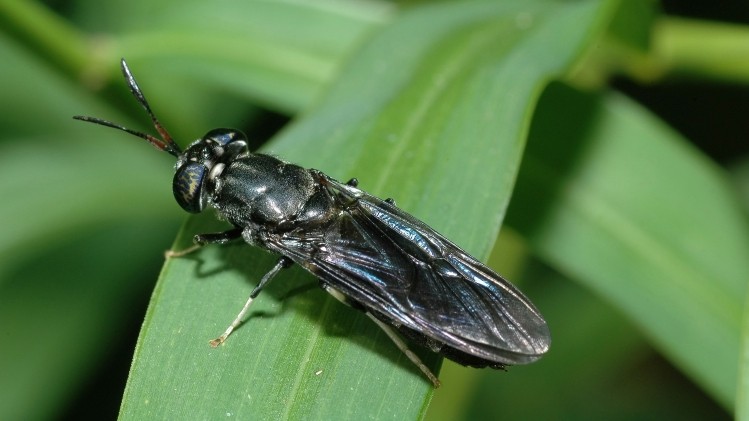
In Singapore, a project to utilise black soldier fly larvae to break down food waste is in full swing, with Professor Rudolph Meier, of the Faculty of Ecology & Evolutionary Biology at the National University of Singapore (NUS), stating that the process of optimising the flies for use in urban locations is a key priority.
The black soldier fly larvae currently consume four times their body weight every day but the scientists have further started to separate the fastest-growing, and thus most ravenous gobblers, to breed as elite forces.
Assistant Professor Nalini Puniamoorthy had earlier said that they would try to optimise the flies’ mating system so that they get “super egg layers, fast growers and efficient recyclers”.
Meier said egg production facilities oversee the growth of small larvae that are then transferred to food containers in a much larger site where they feed on the organic waste.
When the larvae reach critical size, they are killed with heat or frozen then used as animal feed. There is zero waste.
Meier said the conversion rates depend on the quality of the food but the larvae are voracious eaters. He said the rates are better for high-quality food with good nutrient balance.
“As a rule of thumb, a reasonably-balanced food waste source should achieve a conversion ratio of 10:1,” he said.
The leftovers are compost that can be used as fertiliser.
Scaling up
At Insectta, Singapore's first insect farm set up in March last year, about 500kg of food waste from food suppliers, food stalls and homes is recycled each day by about 150kg of black soldier fly larvae.
“They have a very high feed-conversion rate,” said Ng Jia Quan, co-founder and operations manager.
Insectta is collaborating with the NUS scientists on selectively breeding the black soldier flies to be more fecund, more productive, more nutritious as well as to take up less space.
It is also working with Nanyang Polytechnic on food safety and developing snacks from the black soldier fly, such as insect flour.
In terms of animal feed, they are already selling their larvae to pet stores on a weekly basis.
Collaboration and support
Meier acknowledged that there have been some discussions with the NUS Food Science & Technology Programme regarding possible synergies or collaboration.
“The food waste conversion with black soldier flies produces a wide range of potential products. This includes oil, dry larval meal, but also chitin (a derivative of glucose). However, the main emphasis is currently on developing efficient rearing systems that are commercially viable in an urban environment where space and manpower are expensive,” he said.
Both the NUS and Insectta initiatives are part of a project funded by Temasek Foundation Ecosperity, a non-profit organisation that supports impact-driven programmes championing the sustainability of the global ecosystem and the development of innovative solutions to improve livability.
According to Lim Hock Chuan, chief executive of Temasek Foundation Ecosperity, in 2017 Singapore generated 809,800 tonnes of food waste.
Korea’s own troopers
Elsewhere, the Korea Times recently reported that the South Korean government is also conscripting its own insect army to fight food waste.
The local publication said the country’s Rural Development Administration has set up new policies to introduce technological and legal bases for breeding the ptecticus tenebrifer insect larvae.
Ptecticus tenebrifer larvae also produce highly fertile excrement that can be recycled as agricultural fertiliser.
Again, being rich in protein, its larvae can also be used as animal feed.
With the new policies and infrastructure in place, the government hopes to deploy millions in its crawly corps to fight its mounting food waste problem.
The Administration said food waste from 51 million people in South Korea costs the central government 800 billion won (about US$751m) to deal with annually.
